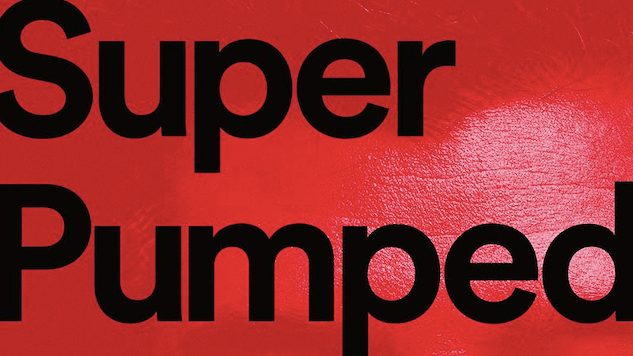Mike Isaac’s Super Pumped Reveals How Uber Became Silicon Valley’s Beast

Mike Isaac’s Super Pumped: The Battle for Uber details the ride-hailer’s rough history, delving deep to dismantle the Silicon Savior narrative.
Enter Uber co-founder Travis Kalanick. A team gathers around him and, in true Silicon Valley fashion, they upend a given business model—in this case, taxis. Swashbuckling success follows, before the whole company flies too close to the sun and is drawn back to earth by its own hubris. Kalanick created Uber; Kalanick became Uber; Kalanick almost killed Uber. Super Pumped details it all, reading more like a soap opera than a business book.
 But Super Pumped is more than that. Like John Carreyrou’s Bad Blood, which tells the story of Elizabeth Holmes’ fraudulent blood testing start-up Theranos, Super Pumped goes beyond the business profile to reveal something deeper and darker. The Uber of Super Pumped—most likely still the Uber of today—is not just a business; it’s a Beast.
But Super Pumped is more than that. Like John Carreyrou’s Bad Blood, which tells the story of Elizabeth Holmes’ fraudulent blood testing start-up Theranos, Super Pumped goes beyond the business profile to reveal something deeper and darker. The Uber of Super Pumped—most likely still the Uber of today—is not just a business; it’s a Beast.
What Kalanick and Uber unleashed was not a new form of greed but an old one, gussied up and technologically enhanced. They turned the bull of Wall Street-style avarice loose and knocked the old way of doing business in the tech sector aside, leaving a trail of shattered screens and tattered transit laws in its wake. The Beast needed cash, of course, but it slaked its thirst in a novel way by chasing growth over profit. It hunted users. The more users Uber had, the more potential its investors saw. It was this potential, and this potential alone, that venture capitalists paid billions for; Uber did not turn a profit.
But the problem with propping up a billion-dollar business on nothing but growth was that if the growth stopped, everything would stop. Such a shark-like drive would inevitably consume those pushing it forward; muscles require blood. Kalanick pushed hard, his workers doing everything they could. He glossed over security and protection; in more brutal markets, drivers were targeted, attacked, robbed, beaten, killed. Kalanick cut prices to goose growth, undermining his drivers. In India, some suffering set themselves on fire; that immolation, not the feckless billions, was Uber’s true burn rate. Kalanick’s drive, so necessary in the rough start, turned into a liability. In money-burning wars with other ride-hailing companies, Kalanick’s empire made the mistake which brought down so many empires before it: never get involved in a land war in Asia.
Eventually, these decisions would herald consequences. Uber’s machinations, its poor treatment of its drivers, its not-so-secret desire to coast on growth until it could eliminate the drivers and finally turn a profit would curdle public perception. The cyber defenses that kept the Beast on the rampage would inspire outrage, especially Greyball: a shadow form of the app which denied service to certain riders. Kalanick himself would become shorthand for the new-found hatred and skepticism of Big Tech that followed Trump; a man who would be a Messiah—and a capricious one at that.
In the end, old capitalism came to reign in the new. With a historically horrific IPO, Uber became a public company with shareholders demanding profit—not growth. Whether the Beast can live in its new-old environment is yet to be seen.
Isaac’s Super Pumped illuminates a saga similar to the one in Carreyrou’s Bad Blood. Theranos took advantage of Silicon Valley’s culture to build a scam. Uber epitomized it.
B. David Zarley is a senior staff writer for Freethink and essayist, book and art critic. His writing has been features in The Atlantic, The Verge, Jezebel, VICE Sports, Frieze, Hazlitt and numerous other publications. He lives in Chicago.







































